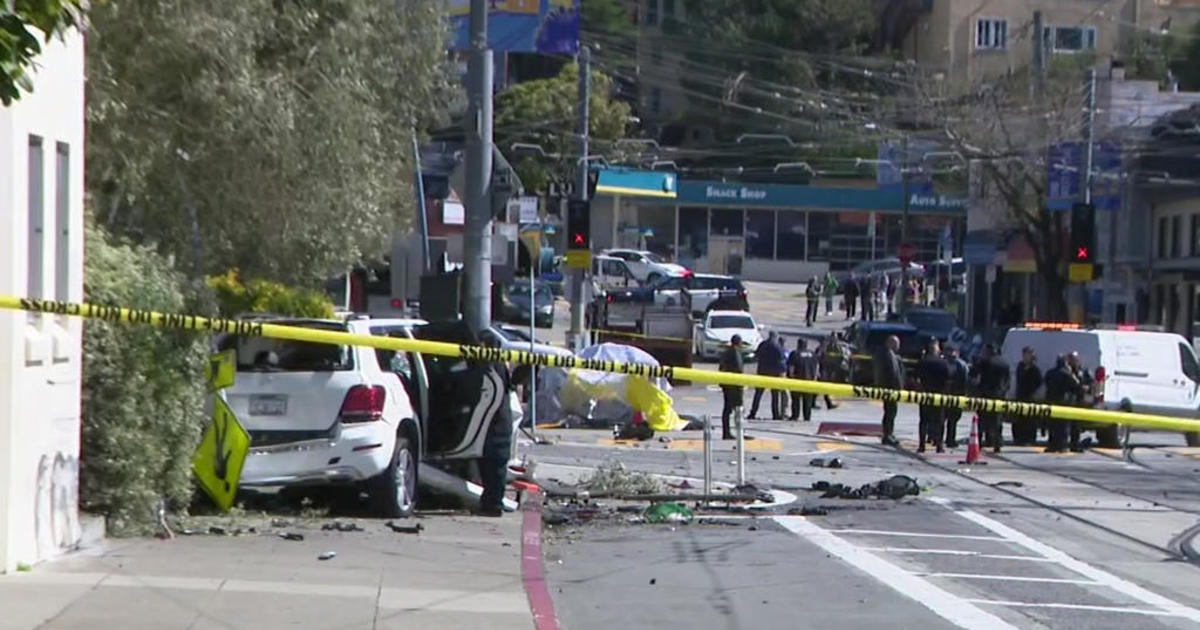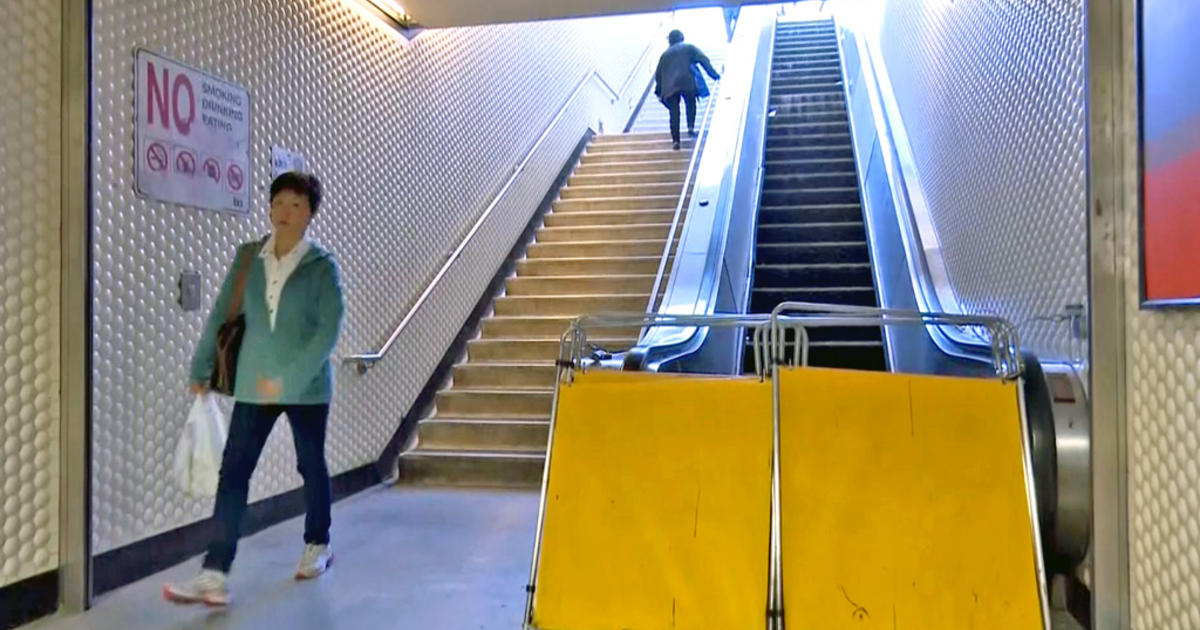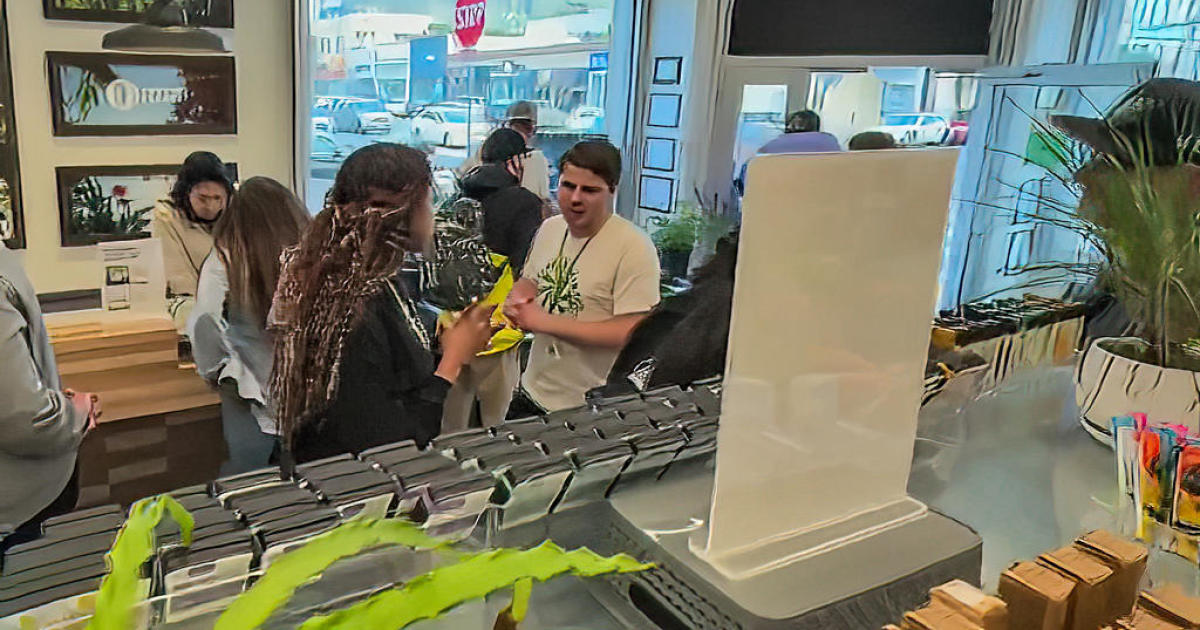Dangerous, Addictive Opioid 'Pinky' To Be Banned This Week
SAN FRANCISCO (CBS SF) -- This week the federal government places an emergency ban on a powerful, highly-addictive painkiller that has killed dozens and sent countless more to emergency rooms in California and across the United States.
It's called Pink or Pinky on the street, and not because of its color. A powerful, lethal dose of this opioid can fit on the tip of your pinky. But the drug is known by its strange catalog number: U-47700.
Since its emergence late last year, the substance is not illegal to buy, and, in fact, has been easy to buy online.
Those making or using the drug dissolve it into liquid to ingest it from an eyedropper or nasal spray, inhale it using a powder, or - as is the case with drug traffickers - press the powder into counterfeit pills.
No matter how they take this drug, it can be addictive and deadly. Since the end of last year, the fatalities have added up. "We've seen over 120 fatalities in our case work from coroner's and medical examiners all over the country," explained Dr. Barry Logan, Chief of Forensic Toxicology at Pennsylvania-based NMS Labs, which does work in death investigation cases.
U-47700 is eight times more powerful than morphine. But under federal law, the drug is not illegal until the emergency ban begins on October 7. The pharmaceutical company Upjohn developed it in the 1970s but for unknown reasons, stopped working on it.
"It has never been tested in animals, never been tested in laboratory studies," said Logan. "It just suddenly appeared on the illicit drug market."
Experts believe chemists working out of secret labs - primarily in China - got hold of the formula. These chemists could have been trolling old patents and discovered how to make the compound, batches of the drug, and some big cash.
"They're being manufactured and sold for the purpose of getting high," said emergency room physician and UCSF Fresno Medical Toxicologist Patil Armenian.
The first documented case of a U-47700 use in California was uncovered by Dr. Armenian and a team of toxicologists earlier this year. It was found in the blood of an unconscious 41-year-old woman who was rushed to Community Regional Medical Center in Fresno.
The patient suffered from chronic back pain and on a regular basis took a legal drug called Norco, a prescription painkiller containing hydrocodone and acetaminophen.
"She takes about three pills at a time, she takes it every day," said Doctor Armenian. But the woman's prescription ran out and she bought more from a friend on the street. The pills had the right shape and - more importantly- the unique imprint required by the FDA.
But unfortunately for this woman, they were counterfeit. Subsequent testing indicate that the pills contained fentanyl and U-47700. The patient had no idea. She took three pills she bought from her friend, and soon passed out and stopped breathing.
She was in a carpool on her way to work. Her fellow travelers then rushed her to the hospital. "She needed to be revived in the emergency department," said Armenian. "She could have died."
The case study was featured in a report Armenian wrote, which was published in the Annals of Emergency Medicine.
The drug may have also played a role in the recent deaths of two boys who were 13-year-old friends in Park City, Utah. "Certainly our goal is to stop this from happening to anyone else's children." said Park City Police Chief Wade Carpenter.
In addition, while the musician and artist Prince officially died of a fentanyl overdose, a source close to the investigation said U-47700 was also found in his system.
The U-47700 batches are sold online to drug traffickers as well as anyone with access to the internet and a way to pay. "They're being shipped directly to the United States," said John Martin, an agent with the U.S. Drug Enforcement Administration in San Francisco."It's almost like playing Russian Roulette."
Martin said that by Friday, U-47700 will be temporarily classified as a Schedule 1 drug, essentially outlawing it.
"Once it is scheduled, then we have a hammer where we can go after these. It's illegal in the United States and we can put these drug traffickers in jail," said Martin.
The temporary ban is good for at least two years, possibly three. During that time, the U.S. Department of Health and Human Services will take a closer look at the compound and its potential danger. After a review, a recommendation will be made to either permanently make U-47700 a Schedule 1 substance or if it is found to have a legitimate medical use, to reschedule it.
For Armenian, this temporary ban can't come soon enough. "I already know thru the grapevine about some cases in San Diego and other cases in California," she said.



